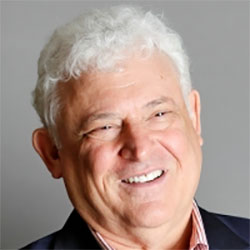About This Episode
If you knew that all the cyclists standing on the winner’s podiums for all seven of the Tour de France competitions that Lance Armstrong won had also engaged in the same kind of chemical blood doping as Lance, would that change your opinion about him, and doping, or not? In this episode of Playing with Science, Chuck Nice and Gary O’Reilly dive into the murky, and incredibly widespread, world of doping with the help of Lance Armstrong, Neil deGrasse Tyson, and their other guests. Michael Shermer, the Scientific American columnist who wrote “The Doping Dilemma” and is a former professional cyclist himself, explains the history of doping, chemical and otherwise, in endurance sports. You’ll learn why an overwhelming majority of professional cyclists made made the “rational decision” to engage in doping in order to stay competitive, and how, in the early 90s, Amgen’s distribution of EPO, a GMO of the naturally occurring erythropoietin, was the game changer which led to a 7-10% increase in performance and an eventual crackdown on doping by the authorities. Discover the qualitative differences in the doping organizations of various cycling teams, including the fierce competition between Armstrong’s US Postal team and Jan Ullrich’s German team. Beyond science, we also discuss the moral aspect of doping. Chuck, who is in favor of “juicing” in football and baseball, and Michael, who is also the author of “The Moral Arc,” get to the heart of many people’s problems with doping in general, and Lance specifically: lying about it, accusing others of doing it, and destroying the lives and careers of reporters and other cyclists like Greg LeMond. Clinical psychologist Dr. Tom Hildebrandt describes the impact that the smorgasbord of performance enhancing drugs and steroids has on the bodies and minds of athletes, including weakening of the heart and early dementia. And Dr. Arthur Caplan, author of The Ethics of Sport, discusses the dangers of doping to both the athletes that do it and the young kids that emulate them, and the unfair advantage they provide that coerces other athletes to dope even if they would otherwise choose not to. Regardless of your feelings about doping, this is an episode that confronts controversy with evidence, and explores the relationship between morality and the desire to win regardless of the cost.
NOTE: All-Access subscribers can watch or listen to this entire episode commercial-free here: The Murky World of Doping in Sports.




 Unlock with Patreon
Unlock with Patreon






 Become a Patron
Become a Patron